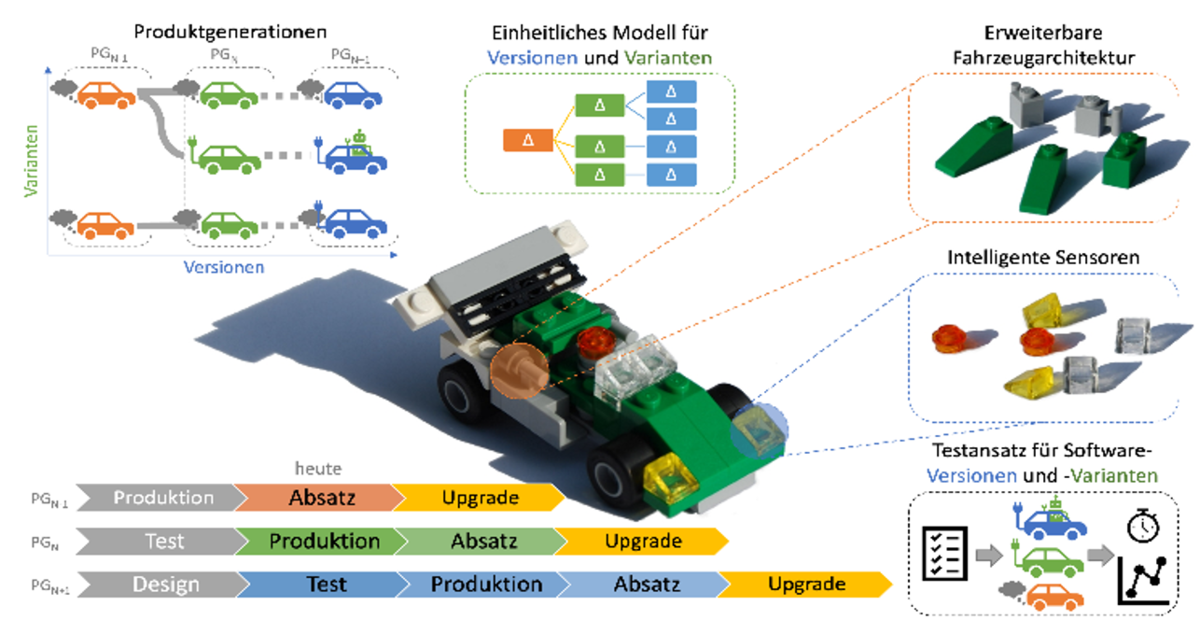SdMobi2 – SWUpCar
- Contact:
- Project group:
Prof. Sax
- Funding:
Ministerium für Wissenschaft, Forschung und Kunst Baden-Württemberg
- Partner:
Universität Stuttgart
- Startdate:
01.02.2022
- Enddate:
31.01.2024
SdMobi2 – SWUpCar
Innovationscampus Mobilität der Zukunft (ICM): SdMobi2 - Integrated approaches for predictive software development of upgrade-capable vehicles (SWUpCar)
Project environment
The German automotive industry is currently facing major challenges. With the exception of China, the automotive market is saturated and the life cycle of vehicles is at a constant high level of approximately 15 years. The automotive industry counters the competition in the saturated market with a combination of historically mass production and the simultaneous production of individually highly customizable vehicle variants. In this way, more and more different variants are derived from each new vehicle generation. Consequently, the number of actively used variants of different vehicle generations is confusing. In addition, the diversity of variants and the long life cycle of vehicles lead to different versions (generations) and variants (characteristics) of the installed hardware and installed software components. In addition, the quantity of hardware components (e.g., sensors, actuators) and, in particular, software components has increased rapidly in order to meet today's customer demands for intelligent driving functions, from parking assistants and lane departure warning systems to highly automated driving.
Problem description
In the SWUpCar project, the project partners are developing and testing integrated approaches for the predictive development of upgrade-capable vehicles. The possibility of upgrading vehicles with additional hardware and software components is to be envisaged and planned for at the design stage in order to enable sustainable business models for future vehicles.
ITIV participation
- Evaluation of software architecture concepts that are suitable as a basis for the required static and dynamic upgrade capability of vehicles
- Specification of extensions to ensure dynamic reconfiguration of HW and SW components during operation as well as static extensions of the E/E architecture during the development phase, taking dependencies into account


